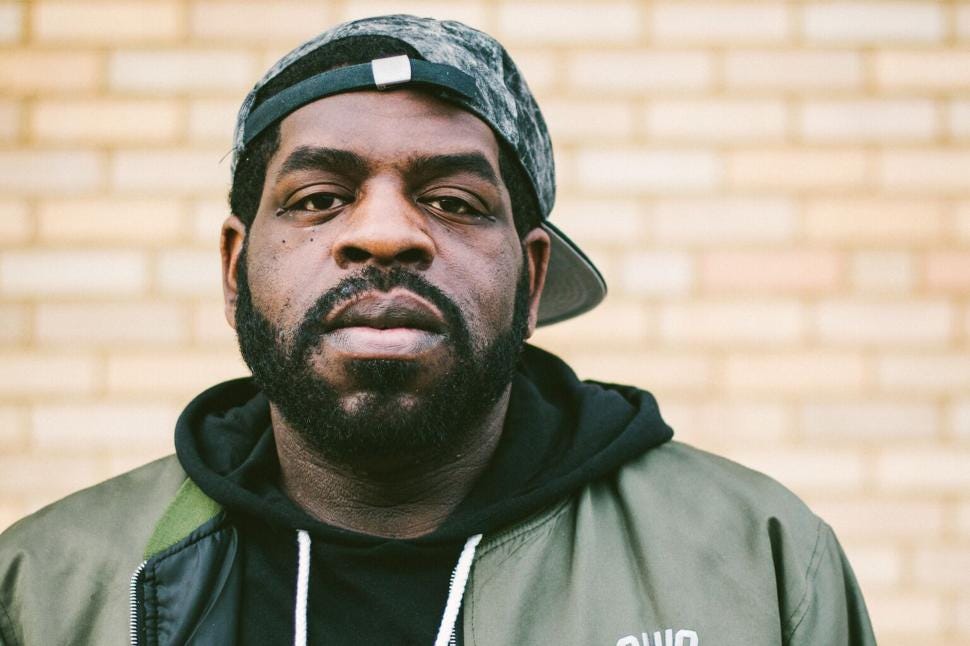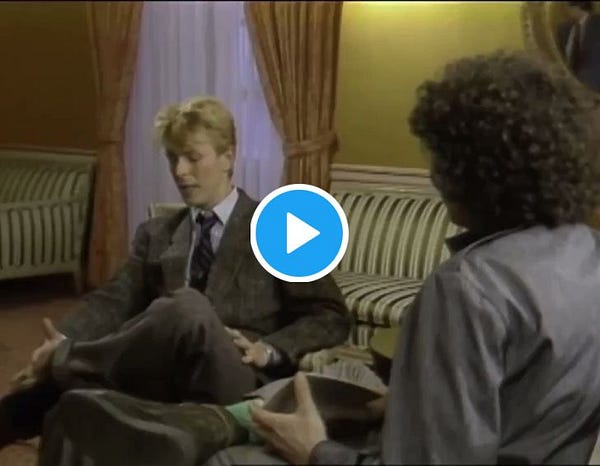reading recs #1: abdurraqib, elizabeth, lewis, crazy horse
"For some of us, denying what this country is and what it is doing to our bodies is impossible. We are perhaps at the crossroads that Marvin Gaye was at in 1970." -Hanif Abdurraqib

(hanif abdurraqib, photo by andrew cenci)
welcome to issue #22 of “tusk is better than rumours,” a newsletter featuring primers and album rankings of experimental and ‘outsider’ musicians. artist primers are published every other monday, and on off-weeks i publish a variety of articles ranging from label and genre primers to interviews to guest writers.
until the end of the month i’m using this space to highlight african american music critics. hopefully y’all will find a new writer or two to follow through these recommendations. in this issue i’ve picked a few of my favorite pieces from hanif abdurraqib, jordannah elizabeth, miles marshall lewis, and kandia crazy horse.
sign up to receive the newsletter if you haven’t already, follow us on twitter @tuskisbetter, and tell a friend. you can also reply to these emails or write to tuskisbetter@gmail.com.
i know all of you read every issue meticulously but there are some new folks this week so to reiterate: last week i announced that for a few issues (through june 29) i’ll use this space to highlight work by african american music critics. at the bottom of the post, instead of the usual “donate” button i’ll select a mutual aid fund or similar cause to direct your contributions to if you can.
the very same day i posted that issue last week, the bon appetit story broke (and continued breaking) in which sohla el-waylly revealed that only white editors for the magazine are paid for video appearances. i don’t follow bon appetit because i mainly eat microwaved popcorn and twizzlers, but the discussion was quickly taken up by the larger world of freelance writers on twitter (click through for thread):

anyway unsurprisingly the people who are paid the most to write, as in all other endeavors, are white men with connections. i’m not sure if this will help too much because i’m not a big player in the music criticism industry or whatnot but maybe let’s at least get some more eyeballs on the black music writers who are at a disadvantage in this system:
Hanif Abdurraqib, “‘In the Morning, I’ll Be Alright’: Marvin Gaye and the Unlikely Patriotism of Resistance” (Pacific Standard)
abdurraqib takes marvin gaye’s performance of the national anthem at the 1983 nba all-star game and spins it into a discussion of What’s Going On, the fourth of july, and what “patriotism” means. it’s a good article to bookmark and read every summer because it has only gotten more relevant since he wrote it in 2015. For more: read his book on a tribe called quest, Go Ahead in the Rain, or visit his new project 68 to 05.
Jordannah Elizabeth, “Black Voices in Music Criticism Are Essential” (East Bay Express) and “The Karmic Concepts of Tech N9ne” (Vice)
the first of these articles is about how elizabeth sees herself as a black music critic who works in majority-white spaces. the second is the tech n9ne interview that she mentions there, in which they discuss camaraderie between rappers. For more: read her work at jewriting.com and publikprivate.org
Miles Marshall Lewis, “Bowie, Back to Stardust” (Ebony)
recently on twitter there’s been a clip floating around in which david bowie takes an mtv interviewer to task for ignoring black music videos. in this article published on the occasion of bowie’s death, lewis explains why he personally loves bowie, and concludes that “race is no straitjacket—i wear it as a crown, personally—but my reasons for digging me some david bowie never had anything to do with him standing up for the lack of african-american music videos on mtv.” for more: read his 33 1/3 book on sly and the family stone’s There’s a Riot Goin’ On.


Kandia Crazy Horse, “Live Review: Mos Def and Gil Scott-Heron at Carnegie Hall” (Village Voice)
after the critical success of 2010’s I’m New Here, gil scott-heron’s comeback was complete. in 2008 though, some people weren’t so sure what to make of the reemergence of this long-lost legend. as crazy horse says in her review of his guest-starring gig with mos def, “many casual fans and detractors nowadays consider scott-heron to be a man in pieces—per a notable early recording of his—a cautionary signifier of a generation’s will to self-destruction.” these naysayers didn’t temper her enthusiasm in this village voice (rip) piece, though, which smartly contextualizes his work at a moment that was much more optimistic than our own. for more: kandia crazy horse edited the compilation Rip It Up: The Black Experience in Rock N Roll and you can read more of her work from the village voice.
this week i’m highlighting a great project from g.l.i.t.s. (gays and lesbians living in a transgender society). they are looking to lease an apartment in new york for five black trans people who have recently been released from riker’s island. donate here and read about it below:





okay if you have a bit of money to spare send it along and i’ll see you next week with some more reading recommendations!


